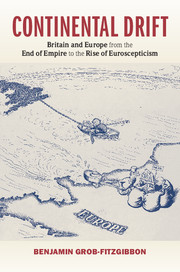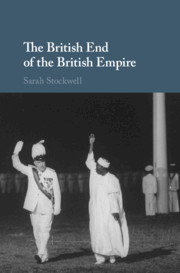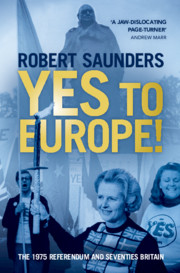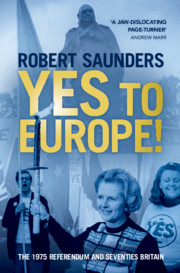Continental Drift
In the aftermath of the Second World War, Churchill sought to lead Europe into an integrated union, but just over seventy years later, Britain is poised to vote on leaving the EU. Benjamin Grob-Fitzgibbon here recounts the fascinating history of Britain's uneasy relationship with the European continent since the end of the war. He shows how British views of the United Kingdom's place within Europe cannot be understood outside of the context of decolonization, the Cold War, and the Anglo-American relationship. At the end of the Second World War, Britons viewed themselves both as the leaders of a great empire and as the natural centre of Europe. With the decline of the British Empire and the formation of the European Economic Community, however, Britons developed a Euroscepticism that was inseparable from a post-imperial nostalgia. Britain had evolved from an island of imperial Europeans to one of post-imperial Eurosceptics.
- Provides a historical understanding of contemporary British debates over Europe, particularly the rise of Euroscepticism
- Reveals that many of the current debates have their roots in the post-war period and broader issues of Britain's place in the world
- Provides essential background to the upcoming referendum on British membership of the European Union
Reviews & endorsements
'What a timely and illuminating book this is! In his richly detailed study of Britain's tempestuous relationship with the European Union, Benjamin Grob-Fitzgibbon shows that the shift from the post-war conviction that a unified Europe was beneficial to Britain to the current wave of Euroscepticism needs to be set in the context of the loss of empire and a longing for its return. A first-rate history that offers real insight into the roots of Euroscepticism.' Dane Kennedy, author of Decolonization: A Very Short Introduction
'This is an intensely readable and engaging study of that most perennial issue in post-war British public life: 'Europe'. Benjamin Grob-Fitzgibbon deftly weaves personalities, parties, and policies in a compelling study which places Britain and Europe in the context of Britain and the world, to the further illumination of each. Continental Drift deserves to become a standard work.' Martin Farr, author of Reginald McKenna
'In this absorbing study, Benjamin Grob-Fitzgibbon tackles head-on a theory routinely invoked by politicians and pundits but almost never subjected to serious scholarly scrutiny - that Britain's turbulent membership of the European Union has long been plagued by the unreconciled longings of empire. Continental Drift not only offers a compelling diagnosis of a major scholarly oversight, but also brings Britain's imperial past into a fascinating dialogue with its troubled European present.' Stuart James Ward, editor of British Culture and the End of Empire
'No other book does as good a job of making clear the critical connection between the dissolution of the British Empire and Britain's evolving relationship with Europe. The reader remains fully engaged throughout while discovering sophisticated yet clear, reasoned arguments and conclusions based on original sources and a sure grasp of post-Second World War British history.' Wm. Roger Louis, University of Texas
'Supercedes every other study of the political-diplomatic history of Britain's involvement with Europe from the 1940s … Explode[s] the myth of British exceptionalism.' Denis MacShane, The Tablet
'The author relies on extensive archival research to trace how imperial decline sowed distrust and frustration among Britons who found it difficult to reconcile themselves with their neighbors across the channel. This impressive study concludes that Britain's troubled history with Europe owes much to the passing of an empire … Highly recommended. Upper-division undergraduates through faculty.' P. Kurzer, Choice
'It is maybe the best book to read on Britain's earlier relations with the European Union.' Tyler Cowen, 'Best Non-fiction Books of 2016', Marginal Revolution
'Eminently readable and meticulously researched. … This is a fascinating read for anyone looking for a single volume explaining Britain's Euroscepticism.' Andrew White, Gartner Blog Network (www.blogs.gartner.com)
'… the book offers a vivid, well-written, and entertaining general narrative of British attitudes toward European integration since 1945. … many of Grob-Fitzgibbon's arguments are intriguing and suggestive; they may well provide a fresh impetus for future research on Britain's postwar relationship with Europe and the wider world.' Mathias Haeussler, H-Net
'Continental drift provides a valuable single-volume study of changing British attitudes to Europe since 1945 … Grob-Fitzgibbon's work is refreshing in shifting attention away from European integration and focusing instead on the long history of Euroscepticism.' David Thackeray, Twentieth Century British History
'This is a timely book with a compelling objective. Benjamin Grob-Fitzgibbon explores the connections between the end of Britain's Empire and the growth of 'Euroscepticism'.' Helen Parr, The English Historical Review
Product details
May 2016Hardback
9781107071261
601 pages
235 × 160 × 32 mm
1.08kg
Available
Table of Contents
- Acknowledgements
- Introduction
- Part I. Imperial Europeans:
- 1. A world undone
- 2. Mr Churchill's Europe
- 3. Mr Bevin's response
- 4. The German problem
- 5. A disunited Europe
- 6. The continental surprise and the fall of the Labour government
- 7. The realities of government
- 8. Perfidious Gaul
- 9. The decline and fall of the imperial Europeans
- Part II. Post-Imperial Eurosceptics:
- 10. At sixes and sevens
- 11. Towards the Common Market
- 12. The rise of the anti-marketeers
- 13. Empire eclipsed, Europe embraced, Britain rejected
- 14. Entering the promised land? Britain joins 'Europe'
- 15. Seasons of discontent
- 16. Half-hearted Europeans
- 17. Mrs Thatcher, John Major and the road to European Union
- Conclusion: post-imperial Britain and the rise of Euroscepticism
- Bibliographical note
- Bibliography.








.jpg)
.jpg)